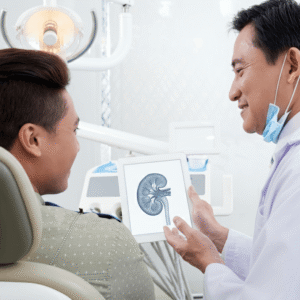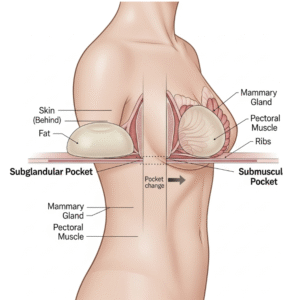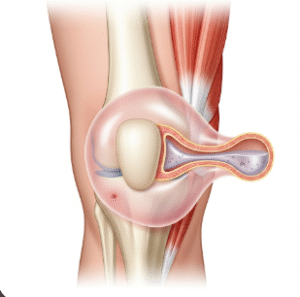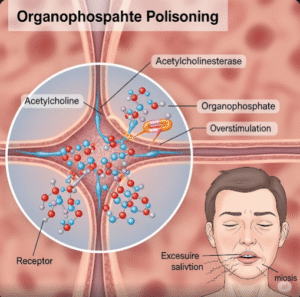Overview
Goodpasture syndrome is a rare but serious autoimmune disorder in which the body’s immune system mistakenly attacks the lungs and kidneys. It is caused by antibodies directed against the glomerular basement membrane (GBM), leading to bleeding in the lungs and progressive kidney damage. In Korea, the condition is considered uncommon but is recognized and treated in specialized hospitals, especially in nephrology and immunology centers. Early diagnosis and treatment are crucial to prevent permanent kidney failure and life-threatening complications.
Symptoms
Symptoms may develop suddenly and worsen quickly. Common signs include:
- Coughing up blood (hemoptysis)
- Shortness of breath
- Fatigue and weakness
- Chest pain
- Swelling in legs, ankles, or feet (due to kidney damage)
- Blood in urine (hematuria)
- Reduced urine output
- High blood pressure (secondary to kidney dysfunction)
Causes
Goodpasture syndrome occurs when the immune system produces anti-GBM antibodies that attack the kidneys and lungs. The exact cause is unknown, but possible triggers include:
- Genetic susceptibility
- Viral or bacterial infections
- Exposure to environmental toxins (such as hydrocarbons or tobacco smoke)
- Certain medications that affect the immune system
Risk Factors
- Age (most common in young men and older adults)
- Family history of autoimmune diseases
- Smoking
- Occupational or environmental exposure to chemicals or solvents
- Recent respiratory infections
Diagnosis
In Korea, Goodpasture syndrome is diagnosed using advanced medical tests:
- Blood tests to detect anti-GBM antibodies
- Urine tests for protein and blood
- Kidney biopsy (gold standard) to confirm antibody deposition in kidney tissue
- Chest X-ray or CT scan to check for lung involvement
- Pulmonary function tests if respiratory symptoms are severe
Prevention
Since the exact cause is unknown, prevention focuses on reducing risk factors:
- Avoiding smoking
- Minimizing exposure to harmful chemicals or solvents
- Managing respiratory infections promptly
- Regular health check-ups for those with family history of autoimmune conditions
Treatment Options in Korea
Hospitals in Korea provide advanced, multidisciplinary care for Goodpasture syndrome, including:
- Immunosuppressive Therapy
- Corticosteroids (e.g., prednisolone) to reduce inflammation
- Cyclophosphamide or rituximab to suppress abnormal immune activity
- Plasmapheresis (Plasma Exchange)
- Removes circulating anti-GBM antibodies from the blood
- Often combined with immunosuppressive drugs
- Supportive Care
- Oxygen therapy for lung involvement
- Dialysis for severe kidney failure
- Blood pressure management
- Long-term Monitoring
- Regular follow-up with nephrologists and pulmonologists
- Kidney function tests and antibody monitoring
Prognosis
The prognosis of Goodpasture syndrome depends on how early treatment begins. With timely therapy, lung symptoms often improve significantly, but kidney damage may be permanent if diagnosed late. In Korea, patients who receive early diagnosis and advanced treatment often achieve good outcomes, though some may require lifelong dialysis or kidney transplantation.













